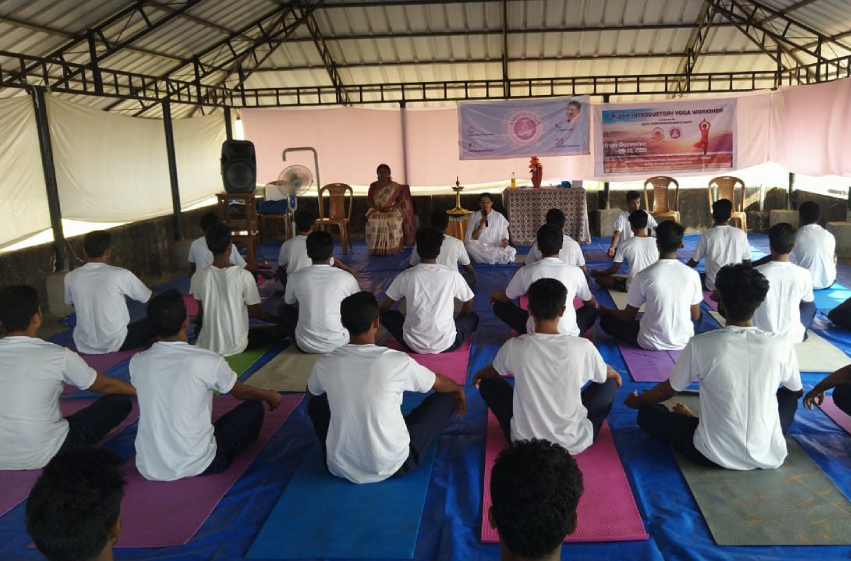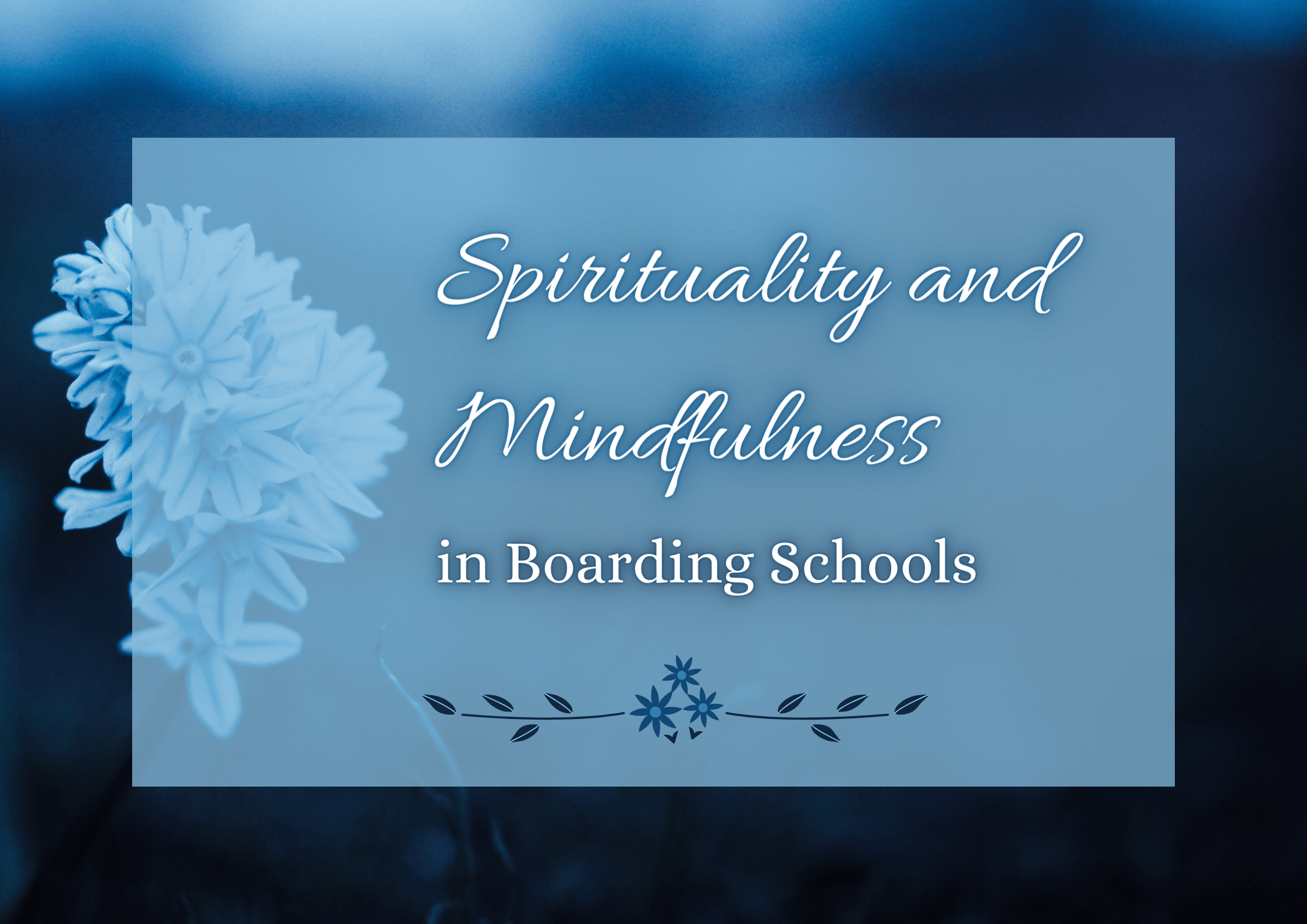Indian boarding schools have a complex and controversial history. Established by colonial powers and later taken over by the government, these schools were often designed to assimilate Indigenous children into Western culture, stripping them of their cultural identity, spirituality and Mindfulness in Boarding Schools.
However, in recent years, there has been a growing recognition of the importance of spirituality and mindfulness in girls’ boarding schools in India. There is an evolving role of spirituality and mindfulness in these educational institutions, with their potential to foster holistic development and cultural preservation.
The Role of Spirituality and Mindfulness in Boarding Schools in India
The Historical Context

Historically, boarding schools in India were established with the primary goal of “civilizing” children by erasing their traditional cultures, languages, and spiritual practices. Children were forcibly separated from their families and subjected to strict Western-style education. This traumatic experience resulted in the loss of cultural identity and spiritual disconnection for many Indigenous individuals and communities.
The colonial period saw the advent of British influence on the age-old Indian education system. Typical Western boarding schools were established that educated the students in English-focused models. Hill stations were preferred for such schools to save Europeans from the Indian heat.
This era shaped the modern-day education and examination system. However, access to this colonial boarding school education was limited to certain classes.
The early boarding schools in India were established by the British colonizers in the 19th century. These schools aimed to impart basic education and discipline to the children of the British officials stationed in India.
The curriculum in these schools focused on subjects like English, arithmetic, and geography, and the emphasis was on inculcating strict discipline and a self-dependent responsible attitude in the students.
The Modern Shift

In recent decades, there has been a significant shift in the approach to Indian boarding schools. Acknowledging the historical injustices, many schools are now striving to create environments that celebrate Indigenous culture, language, and spirituality.
This shift is guided by the recognition that spirituality and mindfulness in boarding schools can play a vital role in healing and personal development for Indigenous students.
The evolution of education in Indian boarding schools has been about adapting to the changing times and societal needs. From their humble beginnings as an institution aimed to impart basic education and discipline, these schools have evolved into comprehensive institutions that provide holistic development to help students in their personal and professional growth.
Cultural Revival

One of the central roles of spirituality and mindfulness in Indian boarding schools is the revival and preservation of Indigenous culture and traditions. These schools often incorporate Indigenous spiritual practices, ceremonies, and storytelling into their curriculum. By doing so, they empower students to connect with their roots, fostering a sense of pride and belonging.
Boarding school education in India has a rich history, dating back from the golden era of Ramayana and Mahabharata to the British colonial period and beyond.
Over the centuries, the boarding school education system has undergone major changes, adapting to the evolving times and societal needs. From being primarily focused on imparting basic education and discipline to children, boarding school education in India has evolved to imparting comprehensive, well-rounded education and helping students in their personal and professional growth.
In Gurukuls a student had to stay with their gurus and practice primarily religious teachings and study traditional scriptures. Education was imparted verbally and later on, palm leaves inscription of Vedas. Apart from religious teachings, the Gurus used to educate their pupils in politics, warfare, medicine, and science.
Holistic Development

Indian boarding schools are increasingly adopting holistic education models that prioritize not only academic excellence but also the development of emotional, physical, and spiritual aspects of students. This approach recognizes that a well-rounded education includes the cultivation of inner peace, empathy, and self-awareness.
Today, boarding school education in India provides a well-rounded education to students and helps them in their personal and professional growth. The curriculum in these schools covers a wider range of subjects and the focus is on developing critical thinking skills and problem-solving abilities.
These schools also place a great emphasis on extracurricular activities and sports, as they help students develop leadership skills and build their character.
In addition to providing comprehensive education, boarding schools in India also place a great emphasis on sports and extracurricular activities. These activities help students develop leadership skills, build their character, and form lasting bonds with their peers. They provide students with opportunities to pursue their interests and explore new hobbies, encouraging them to become well-rounded individuals.
Boarding schools in India are also known for their strong network and bond among students, teachers, and staff. With a focus on creating a supportive and nurturing environment, these schools provide students with a safe and secure place to live and learn.
This supportive environment helps students develop a sense of self-reliance and independence, preparing them for the life ahead.
Furthermore, boarding schools in India also offer students access to state-of-the-art facilities and resources. With access to the latest technology and resources, students can expand their knowledge and skills, and they are well-prepared for the future. From cutting-edge science labs to modern libraries and multimedia centres, these schools provide students with the tools they need to succeed.
Connection to Nature

Spirituality and Mindfulness in Boarding Schools in Indigenous cultures often emphasize a deep connection to nature. Many Indian boarding schools are located in rural areas surrounded by natural beauty. This setting allows students to engage with the land, learn traditional ecological knowledge, and develop a profound respect for the environment—a key aspect of many Indigenous belief systems.
Overlooking the scenic Shivalik Range of the Himalayas, Ecole Globale is a zero-emissions campus and believes in maintaining utmost cleanliness and top-notch maintenance of its academic and non-academic spaces.
The peaceful ambiance of the 40-acre campus is an ideal place for receiving education in the tender years of one’s life, which is why Ecole is proudly one of the most beautiful campuses across India
Conclusion
The role of spirituality and mindfulness in boarding schools in India is evolving from a historical context of cultural suppression to one of cultural revival, healing, and holistic development. By embracing Indigenous spirituality and mindfulness practices, these schools have the potential to empower students to connect with their heritage, heal from historical trauma, and develop into well-rounded individuals.
However, it is crucial to approach this transformation with sensitivity and respect for the diverse spiritual traditions within Indigenous communities, ensuring that all students can benefit from these valuable resources. Ultimately, the integration of spirituality and mindfulness in boarding schools in India can contribute to a brighter and more culturally inclusive future for Indigenous youth in Indian boarding schools.
All the methods adopted at Ecole Globale to make students learn are well-complemented by the aids of technology, which help the teachers and students adapt to the latest learning. The residential school experience teaches students various aspects of their lives, such as self-reliance, discipline, time management, and balancing academics, co-curriculars and extra-curriculars with ease.









